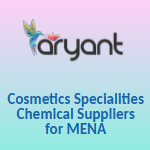Organizational capabilities refer to the unique set of skills, knowledge, and resources that a company possesses that enable it to achieve its objectives and gain a competitive advantage. In the pharmaceutical manufacturing industry, there are several key organizational capabilities that are critical to success including research and development, quality control, manufacturing excellence, regulatory compliance, supply chain management and data analytics and digital capabilities.
Of these from a pure manufacturing point of view the following two capabilities are important and these are quality control and manufacturing excellence.
Quality Control: Quality control is essential to ensuring that pharmaceutical products meet regulatory requirements and are safe for patients. Companies that have robust quality control systems and processes can minimize the risk of product recalls, protect their reputation, and build trust with customers.
Manufacturing Excellence: Strong manufacturing capabilities are critical to producing high-quality pharmaceutical products efficiently and at scale. Companies that invest in advanced manufacturing technologies and processes, such as automation and continuous manufacturing, can gain a competitive advantage in the marketplace.
GMP or “Good Manufacturing Practice” is a set of guidelines and regulations that ensure that products are consistently produced and controlled according to quality standards appropriate for their intended use and that they meet regulatory requirements. GMP is commonly used in pharmaceuticals, medical devices, food manufacturing, and cosmetics to ensure the safety and efficacy of products.
The performance of the drug in pharmaceutical industry is dependent on the API or active pharmaceutical ingredient. Any issues with the API quality has direct impact on both safety and effectiveness of the medication. Therefore superior manufacturing capability is very essential in pharma industry.
A pharmaceutical manufacturing plant requires a range of specialized equipment to ensure that products are consistently produced to meet quality standards and regulatory requirements. The equipment required includes manufacturing equipment, cleanroom facilities, quality control and analytical equipment, environmental monitoring equipment, packaging equipment, water purification systems, HVAC systems, and waste management systems.
For superior pharmaceutical manufacturing these should be adequately addressed, otherwise there may be issues with API quality. A good pharmaceutical manufacturing plant requires a range of specialized equipment to ensure that products are consistently produced to meet quality standards and regulatory requirements. It is expected that any organization seeking to have strong capabilities for superior pharma manufacturing will ensure the availability of the required specialized equipment.


